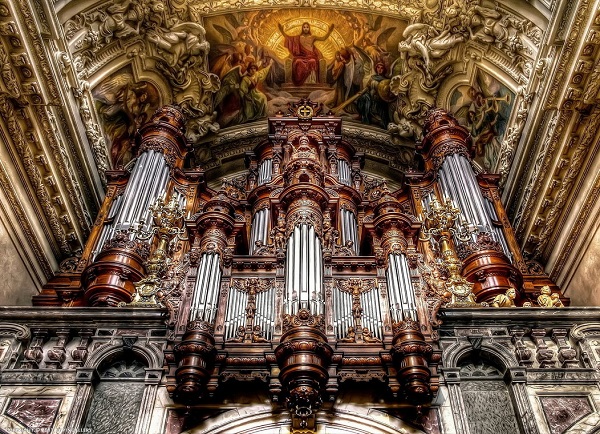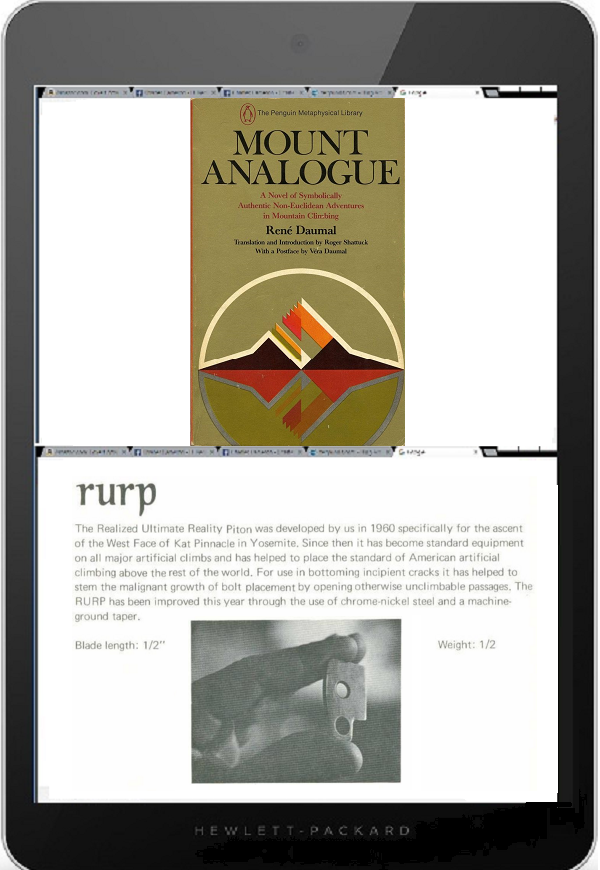Bach and the sacramental arts
Tuesday, April 5th, 2016[ by Charles Cameron — closing out a thread that began with anoither recent post of mine ]
.
**
The immediate occasion for this [second] post is my reading about the book Eucharistic Poetry: The Search for Presence in the Writings of John Donne, Gerard Manley Hopkins, Dylan Thomas, and Geoffrey Hill, by Eleanor J. McNees. Her subtitle names four poets I greatly admire, and whose company I would aspire to keep:
Though widely separated chronologically, all four poets use the Anglican and Roman Catholic doctrine of eucharistic Real Presence (the literal embodiment of Christ in the sacrament of Holy Communion) as model for their own poetry. Each poet seeks to charge his words with a dual physical/spiritual meaning that abolishes the gap between word and referent and so creates an immediate presence that parallels Christ’s Real Presence in the Eucharist.
**
That pasage, in turn, reminds me of some words John Eliot Gardiner spoke on the topic of Bach and grace,
on the DVD of a rehearsal of Bach’s cantata Christen, ätzet diesen Tag (BWV 63) right after Sara Mingardo sings O Selger Tag. Gardiner first quotes Bach, then translates him:
Nota bene: Bei einer andächtigen Musik ist allezeit Gott mit seiner Gnaden Gegenwart.” Now I find that very, very significant. That he’s saying wherever there is devotional music, God with his grace is present.
How close is that to the poets McNees talks about, creating with their poems “an immediate presence that parallels Christ’s Real Presence in the Eucharist”?
And then he comments —
Which, from a strict theological point of view is probably heresy, heretical, because it’s saying that music has an equivalent potency to the word of God.
I’m not so sure about the heresy, but this is the point at which I turn to Lexington Green‘s comment on a recent post of mine, in which he quoted the Cathecism of the Catholic Church:
1374 The mode of Christ’s presence under the Eucharistic species is unique. It raises the Eucharist above all the sacraments as “the perfection of the spiritual life and the end to which all the sacraments tend.” In the most blessed sacrament of the Eucharist “the body and blood, together with the soul and divinity, of our Lord Jesus Christ and, therefore, the whole Christ is truly, really, and substantially contained.” “This presence is called ‘real’ – by which is not intended to exclude the other types of presence as if they could not be ‘real’ too, but because it is presence in the fullest sense: that is to say, it is a substantial presence by which Christ, God and man, makes himself wholly and entirely present.”
**
Whether in the performance and hearing of Bach, Christ can be said to be “wholly and entirely” or “devotionally and musicially” present is a delicate question, one part ontological and absolute, I’d suppose, and one part epistemological and subjective.. but I find myself in warm agreement with Gardiner’s elaboration of his theme..
And I think that in essence is why Bach is so attractive to us today because he is saying that the very act of music-making and of coming together is, in a sense, an act which invokes the latency, the potency, the potentiality of God’s grace, however you like to define God’s grace; but of a benediction that comes even in a dreadful, overheated studio like Abbey Road where far too many microphones and there’s much too much stuff here in the studio itself, that if one, as a musician, puts oneself in the right frame of mind, then God’s grace can actually come and direct and influence the way we perform his music.
I really must read me some Hans Urs von Balthasar.





